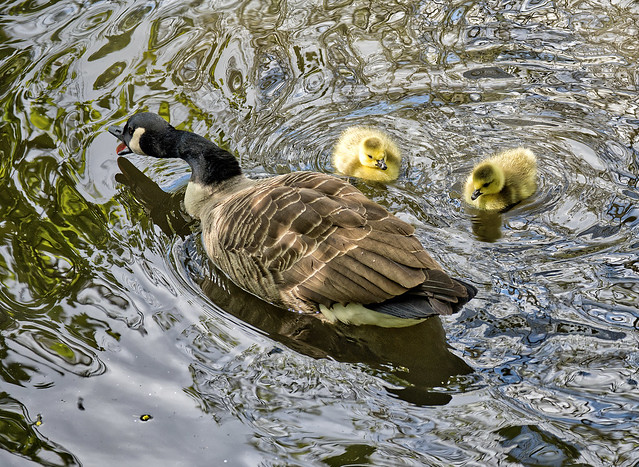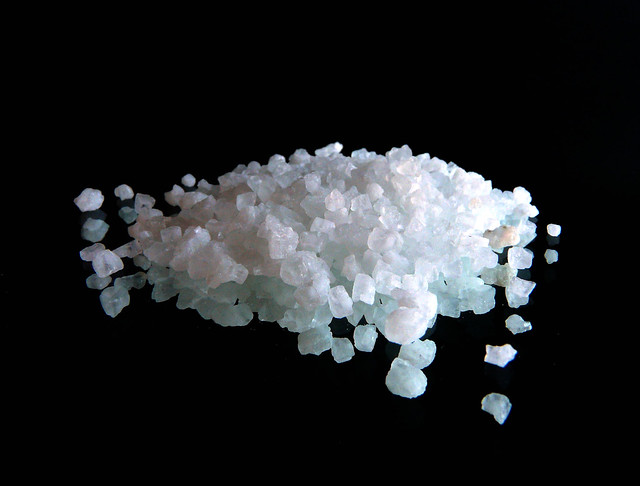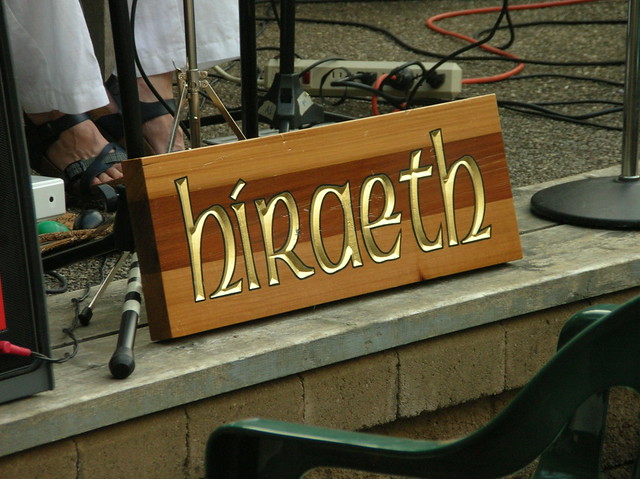Today we’re looking at the words for father and related people in Celtic languages.

Words marked with a * are reconstructions.
| Proto-Celtic |
*ɸatīr [ˈɸa.tiːr] = father
*ɸatriyos = paternal |
| Old Irish (Goídelc) |
ath(a)ir [ˈaθɨrʲ] = father
athramail = fatherly, paternal, fatherlike |
| Middle Irish (Gaoidhealg) |
athair, athir = father
aithre, aithreacha = parents, forefathers, ancestor |
| Irish (Gaeilge) |
athair [ˈɑhəɾʲ/ˈahæɾʲ] = father, ancestor, sire
aithriúil = fatherly
ardathair = patriarch
athair mór = maternity, fatherhood
leasathair = stepfather
seanathair = grandfather |
| Scottish Gaelic (Gàidhlig) |
athair [ahɪrʲ] = father, progenitor, sire
athair-baistidh = godfather
athair-cèile = father-in-law
bràthair-athar = parternal uncle
leas-athair = stepfather
piuthar-athar = parternal aunt
prìomh-athair = forefather, patriarch
taobh athar = paternal |
| Manx (Gaelg) |
ayr [ˈeːar] = father, matron, mater, queen, dam; focus, fountainhead, generator
ayroil = fatherly, parternal
ayrvarroo = patricide
shennayr = grandfather |
| Old Welsh |
-atr = ? |
Etymology from the Proto-Indo-European *ph₂tḗr (father) [source]. Words from the same PIE root include father, padre, paternal in English, and Vatter (father) in German [source].
| Proto-Celtic |
*attyo-, *attiyos = father, foster-father |
| Old Irish (Goídelc) |
aite [ˈadʲe] = foster-father; tutor, teacher |
| Middle Irish (Gaoidhealg) |
aite = foster-father, tutor, teacher
aitecht = tutorage, instruction |
| Irish (Gaeilge) |
oide [ˈɛdʲə] = foster-father; tutor, teacher
oideachas = education
oideachasóir = educationalist
oideachasúil = educational
oideas = instruction, teaching, prescription, recipe
oideoir = educator
oideolaíoch = pedagogic(al) |
| Scottish Gaelic (Gàidhlig) |
oide [ɤdʲə] = tutor, foster-father, stepfather, godfather
oide-altraim = foster-father
oide-baistidh = godfather
oide-foghlaim = instructor
oide-ionnsachaidh = tutor
oide-sgoile = schoolmaster
oidich = instruction |
| Manx (Gaelg) |
gedjey = foster-father, godfather, guardian, sponsor |
Etymology from the Proto-Indo-European *átta (father) [source].
| Proto-Celtic |
*tatos = dad, daddy |
| Proto-Brythonic |
*tad = father |
| Middle Welsh (Kymraec) |
tad = father |
| Welsh (Cymraeg) |
tad [taːd] = father
tadaidd = fatherly, paternal
tadeiddiad = fatherhood
tadenw = patronymic
tadol = paternal, fatherly, inherited from the father
tadu = to father (a child), become a father; ascribe, attribute (to)
tadwlad = fatherland, native land
tadwys = family, lineage, fatherhood
tadwysaeth = paternity |
| Old Cornish |
tat = father |
| Middle Cornish (Cernewec) |
tad, tat = father
tadvath, tatvat = nurser, breeder |
| Cornish (Kernwek) |
tas [taːz/tæːz] = father
tasek = patron
tasrewl = patriarchy
tasveth = foster-father
tas bejydh = godfather
tas gwynn = grandfather
Tas Nadelik = Father Christmas
tas sans = patron saint
ugheldas = patriarch |
| Middle Breton |
tat = father
tadelez = paternity |
| Breton (Brezhoneg) |
tad [ˈtɑːt] = father
tadeg = father-in-law
tadek = paternal
tadelezh = paternity
tadig = dad, daddy
tad-kaer = father-in-law
tad-kozh = grandfather
tad-kuñv = great-grandfather
tata = dad |
Etymology from the Proto-Celtic *attiyos (father, foster-father), the Proto-Indo-European *átta (father) [source]. The English word dad possibly has Celtic roots [source].
| Proto-Celtic |
*altrawū = foster uncle |
| Old Irish (Goídelc) |
altra = foster-father |
| Middle Irish (Gaoidhealg) |
altra = foster-father
altrannas = fostering, fosterage, nurture
banaltra = foster-mother, nurse |
| Irish (Gaeilge) |
altra [ˈɛdʲə] = nurse (gender-neutral), foster-father†
banaltra = (female) nurse
altram = fosterage
altramaí = fosterer, foster-parent
altramaigh = to foster
altranas = nursing |
| Scottish Gaelic (Gàidhlig) |
altram [al̪ˠdrəm] = nursing, nurturing, dandling, fostering, fosterage, rearing
altraim = nurse, nurture, dandle, foster, rear
altrach = fosterer, one who fosters, nurse
banaltram [ban̪ˠal̪ˠdrəm] = nurse, wet-nurse
neach-altram = nurse, nursing profession |
| Manx (Gaelg) |
boandyr = nanny, nurse, nursemaid
boandyrys = to nourish, nurse, nursing |
| Proto-Brythonic |
*alltrọw = ? |
| Middle Welsh (Kymraec) |
athro, athraw = teacher, instructor, tutor
athrawes, athravves = female teacher, tutor, governess, school mistress
athronddysg, athrondysc, athronddysc = doctrine, teaching, instruction, learning
alldraỽ, alldraw = godfather, godparent |
| Welsh (Cymraeg) |
athro [ˈaθrɔ] = teacher, instructor, tutor, doctor (of law, literature, etc), scholar, master, professor
athrawes [aˈθrau̯ɛs] = female teacher, tutor, governess, school mistress
athronddysg = doctrine, teaching, instruction, learning
alltraw [ˈaɬtrau̯] = godfather, godparent; (ecclesiastical) sponsor, representative, attorney
alltrewes [aɬˈtrau̯ɛs] = godmother |
| Old Cornish |
alltrow = stepfather |
| Middle Cornish (Cernewec) |
altrou = stepfather
altruan = stepmother
aultra = godfather
aultruan = godmother |
| Cornish (Kernwek) |
altrow = stepfather
altrewen = stepmother |
| Old Breton (Brethonoc) |
altro = foster-father |
| Middle Breton |
autrou, otrou, eutreu = lord, foster-father |
| Breton (Brezhoneg) |
aotroù [ˈɔ.tru] = lord, gentleman, Mr
aotrouniaj = lordly, stately, manorial, seigneurial
aotrouiek = seigneurial, authoritarian.
aotrouniekaat = to act authoritarian
aotrouiezh = authority
aotrounius = imperious |
Etymology from the Proto-Celtic *altros (foster), from *altos (nourished, fostered) + *awū (uncle), ultimately from Proto-Indo-European *h₂éwh₂os (maternal grandfather, maternal uncle). Words from the same roots include uncle in English, abbi (grandfather, old man) in Faroese, and oncle (uncle) in French [source].

Sources: Wiktionary, Am Faclair Beag, Online Manx Dictionary, Teanglann.ie, eDIL – Electronic Dictionary of the Irish Language, In Dúil Bélrai English – Old Irish glossary, An Etymological Dictionary of the Gaelic Language, Geiriadur Prifysgol Cymru, Gerlyver Kernewek, Dictionaire Favereau, TermOfis, English – ProtoCeltic WordList (PDF), Etymological Dictionary Of Proto Celtic












